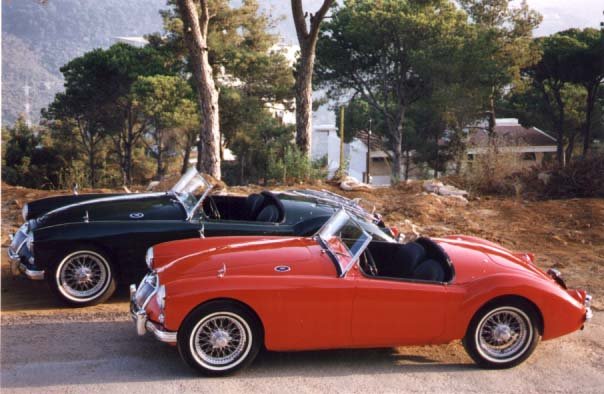With an internationally recognized concours d’elegance, multiple vintage car clubs and museums, and tens of thousands of collectors restoring old cars, India’s collector car scene has grown rapidly over the last several years. However, that growth may come to a halt with the pending passage into law of a government agency’s order banning all old cars – regardless of historical value – from Delhi.
The National Green Tribunal‘s order, issued in November 2014, called for a blanket ban on all diesel and gasoline-powered vehicles 15 years or older from Delhi, the country’s capital and second-largest city, citing high levels of air pollution. That order made no exceptions, however, and as pointed out in a recent Economic Times article, the order is set to become law in Delhi, barring any last-minute protestations of the city’s historic vehicle advocates.
“A complete ban will surely kill the historic vehicle movement,” Ravi Prakash told the Economic Times.
Prakash, of Bangalore, recently formed the FHVI in part to address the NGT old car ban – and similar bans predicted for India’s other major cities – and to request an exemption for historic cars similar to the exemption the FFVE got from the Paris old car ban last year. Of the 20 million cars on the road in India, observers estimate about 10,000 of them qualify as historic vehicles.
Whether the NGT will consider arguments for historic vehicle exemptions is up in the air. In granting temporary exemptions to the order to the organizers of Delhi’s 21 Gun Salute International Vintage Car Rally the last three years, the NGT has requested proof that the rally benefits charities, and appeared unlikely to waver from its initial ruling otherwise.
“Prima facie, we are against running of such vehicles and you are totally barred by our order,” the NGT wrote. “We make it clear that none of the vintage cars would be otherwise permitted on the roads of NCR (National Capital Region), Delhi, nor any authority would issue fitness certificates to them without specific order of the tribunal,”
In addition, the country’s Supreme Court upheld the ban in April 2015, arguing that it should not discourage the NGT or interfere with its order.
However, Gautam Sen, FIVA’s vice president of external relations, said he believes the NGT simply “doesn’t see any difference between any old polluting taxi versus a historic vehicle. If the proper representation and explanation is provided to the NGT and the concerned bureaucrats in government, the exemption (I hope) should come through.”
Indeed, the NGT’s order concerning diesel trucks recently suffered a setback after a recent amendment to that order calling for the de-registration of diesel-powered vehicles in Delhi sparked protestations by truck drivers and transport companies. In January, the Indian Supreme Court told the NGT to focus on reducing other sources of air pollution instead of banning old diesels; then last month, the Indian government stated that the NGT violated the law with its diesel order.
Should no exemption come through, Sen said he believes the NGT could expand the order to cover other heavily polluted Indian cities. “Historically, whatever environmental measures have been taken for Delhi, were soon applicable to all Indian class A cities,” Sen said. “In terms of pollution levels, though Delhi leads, cities like Bombay, Bangalore, Chennai and Calcutta (Kolkata) are not too far behind.”
Proponents of an exemption for historic vehicles from the NGT order note that whatever pollutants those vehicles emit are mitigated by the minimal use of the vehicles, primarily to shows and rallies or for occasional weekend use.
According to Sen, the NGT order is expected to become law this July.
text credit: © 2017 Hemmings
